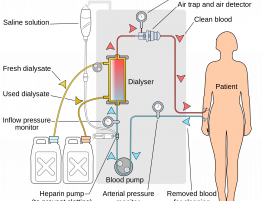Everyone experiences insignificant injuries that don’t deserve a second thought. Whether it’s a small cut or something that requires a band-aid, we tend to clean it up and move on with our day.
However, if you have diabetes or vascular disease, it’s very important to check your body, especially your feet, for sores, or wounds on a regular basis. Any cut or break in the skin deserves immediate attention. A simple injury can spiral into a diabetic ulcer that could require amputation if the proper care isn’t given. If you’re experiencing sores that simply won’t heal, read on to learn about 3 possible culprits…
1. Your Shoes
Footwear can be a major culprit of sores not healing. If your shoes are too tight, too lose, or if they are applying pressure on your sore it can be nearly impossible for the wound to heal. Athletic shoes are ideal, and it’s always a good idea to be properly fitted by a professional. If they rub the wrong way, they’re likely to be counter-productive to your efforts. Podiatrists and Vascular Specialists can usually provide an air cast or similar device to reduce pressure on the sore while it heals, and help to keep you mobile while the sore is healing.
2. Wound Care
Wound care is vital to the prevention of amputation. If you do develop an ulcer, it is important to stay aware of it, make sure it stays clean and dry, and see a wound care specialist as soon as possible. Antibiotic cream should be applied immediately after you notice a sore developing to promote healing. If it doesn’t begin to improve within a few weeks, your doctor will want to take a culture to determine if an infection is present. They may determine that the sore will not heal properly without intervention – and discuss procedures available to avoid amputation.
3. Neuropathy
Neuropathy is an issue with the peripheral nerves, causing weakness or numbness, commonly in the feet or hands. This is very common with Diabetics, the elderly, and those that are wheelchair bound; and prevents the person from feeling how severe the wound actually is. In many cases a sore progresses because the person is unaware that they have it. It is very important to regularly check your body, especially your hands and feet, for breaks in the skin.
The most important piece in this discussion is that amputations CAN BE PREVENTED. Treatment options have improved significantly, and when the root of the issue is addressed, outcomes are very successful. The body is made to heal itself, and when it doesn’t, there are professionals to help.

